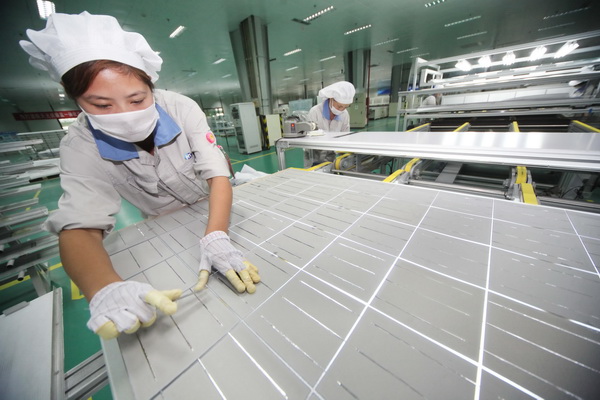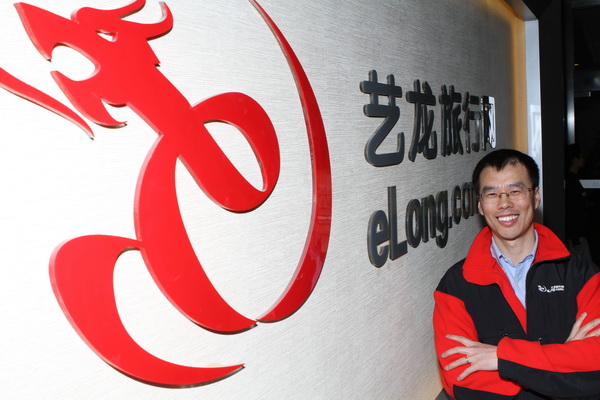

Highlights from the EO print edition, No. 596, Nov 26, 2012
Rumors Float about Alibaba Buying Stake in Sina Weibo
News, cover
~ Rumors that Alibaba was buying 15-20 percent of Sina Weibo’s stock attracted a lot of attention last week.
~ Key people including Cao Guowei (曹国伟), Chairman and CEO of Sina, Du Hong (杜红), COO of Sina, and Cai Chongxin (蔡崇信), the person in charge of Alibaba investment, all chose to stay silent.
~ The Economic Observer learned that at Sina’s internal strategy meeting earlier last week, Mr. Cao said, “There’s no such thing as what the rumor said.”
~ However, a source in a high position at Sina said, “Further deep cooperation with Alibaba in the future is a certain. Both Sina and Alibaba will have a grand future.”
~ Another insider revealed that “the cooperation involves many aspects. It’s much more complicated than what outsiders imagine.”
~ Wang Gaofei (王高飞), the former general manager of Sina Mobile, told the EO that he had not taken over as the general manager of Sina Weibo as some media have reported. His future job title hasn’t yet been decided.
~ As of the date this article was published, there was still no sign that Sina plans to announce the selling of 15-20 percent of Sina Weibos shares.
Original article: [Chinese]

Major Problems Plague Domestic PV Market
News, page 5
~ Cai Minghui (蔡明辉),a project manager of the overseas division at Datang Corporation Renewable Power Co., Ltd, has recently been looking for overseas photovoltaic projects to invest in.
~ Many other domestic enterprises are also showing interest in investing in overseas PV projects. However, they have little interest in investing in domestic PV power stations.
~ Why aren’t the government’s preferential policies in the PV industry able to attract investment? Wang Xuejun (王学军), chairman of Baysolar AG, said, “There are still many problems in the domestic market that need to be solved. If these problems aren’t solved, even if there are policies to offer subsidies, it’s still difficult to rescue the market.”
~ In Wang’s view, the domestic PV market still has three problems. One is that there’s no guarantee that 100 percent of the power generated by PV power stations can be purchased.
~ The second problem is that the cost of investing in PV power stations in China is very high. Currently the interest rate on loans for investing in new energy in China is more than 7 percent. “We cannot accept such high interest rates,” Wang said. “So for investors, they are more willing to look for countries or regions where capital costs are lower.”
~ The third problem lies in the uncertainty of policy.
~Wang also said, “The key to rescuing market is to break the current grid monopoly, which can activate the market. Subsidies are not necessary.”
Original article: [Chinese]

Special Feature: Under the Shadow of the Three Gorges Dam
Nation, page 9-10
~ Over the next few weeks the EO will publish in installments a special feature that looks at the cost of dealing with the problems caused by the construction of the huge Three Gorges Dam. The series will look at how governments at all levels are responding to the pressures related to relocating populations and ongoing environmental consequences of the mega project.
~ In this week's newspaper we have a look at how compensation supplied by the central government and topped up by provincial-level governments is being divided up in the area.
~ Although the municipality of Chongqing and Hubei Province now appear to have reached agreement on how to divide up central government payments, the local counties and districts are still engaged in a bitter contest to get their hands on the money.
~ At the end of October, the level of the water behind the world's biggest hydropower project reached 175 meters, the same level that it has reached for the past three years. Though the dam is now officially completed, many of the problems related to relocating people and dealing with environmental consequences remain.
~ In May 2011, China's State Council announced that from 2011 through to 2020 it would spend 123 billion yuan on cleaning up the social and environmental problems that remained in the wake of the construction of the dam. Last month some of these funds began to reach the people on the ground when Chongqing announced 152 projects involving 7.6 billion yuan of investment. Hubei approved 33 similar projects back in February this year.
Original article: [Chinese]
Chinese Liquor Stocks under Pressure
Market, page 19
~ On Nov 19, a report on Chinese liquor containing the toxic chemical DEHP sent liquor stocks tumbling.
~ From Nov 2 to 21, the share price of Maotai (茅台) dropped by 12 percent and those of Wuliangye (五粮液), Luzhou Laojiao (泸州老窖) and Yanghe Brewery (洋河股份) dropped by 16 percent on average.
~ This was the sharpest drop in the last six years for liquor stocks, which have been largely unaffected by the economic downturn.
~ After the incident was reported, the liquor stock index plummeted by 5.6 percent. On that day, Jiugui Liquor (酒鬼酒) and Laobaigan Liquor (老白干酒) shares were suspended after falling by the maximum allowed in a single day.
~ In August, Jiugui, Maotai and Gujing (古井贡) stocks dropped one after another after it was reported that they had produced liquor with fake alcohol and that there were financial irregularities at the companies.Some investors believe that after this recent series of blows, the DEHP incident may just be the final straw.
~ Over the past six years Maotai shares have risen to over 10 times their IPO price of 55 yuan. Jiugui’s share price has increased 19-fold since its IPO. There’s debate over whether the liquor industry is overvalued.
~ Qiu Guolu (邱国鹭), the investment director of China Southern Fund Management Co., Ltd (南方基金), gave a speech saying that most liquor in the market is low-end, while the companies that have gone public produce high-end liquor. Qiu argued that this meant that listed companies had no problem with overcapacity.
~ A fund manager said, “We’ve been thinking that liquor stocks are over valued, so we try to avoid investing in them for the moment.”
~ Wang Liang (王亮) from Taihe Investment Company (太和投资) told the Economic Observer, “It’s exactly because of the disagreements between investment companies that there have been sharp ups and downs in liquor stocks. Investors have grown jittery about any slight change. Now the DEHP incident may be another turning point for liquor stocks.”
~ An executive at a fund company with a large stake in Jiugui Liquor says he feels helpless with the situation. “Our researchers had been optimistic about liquor stocks; especially with Jiugui,” he said. “There have always been arguments about liquor stocks like Maotai, but the share price kept on rising.”
Original article: [Chinese]

eLong's Not Afraid of Losses
Corporation, page 28
~ eLong, Inc. (艺龙旅行网) was once one of China's leading online travel service providers. The Nasdaq listed company is based in Beijing and its largest shareholders are Expedia, Inc. and Tencent Holdings Ltd.
~ According to the company\'s third quarter results which were announced on Nov 16, despite a 20 percent jump in net revenue over the past year, the company reported net losses for the quarter of 33 million yuan.
~ This is the first time since 2009 that the company has reported a quarterly loss.
~ Cui Guangfu (崔广福), eLong's CEO, said that one of the reasons for the losses was the large marketing campaign that the company had run over the past 3 months which was in response to an expensive ad campaign launched by the company's main competitor - Ctrip (携程). The company also said that it invested funds in updating its IT infrastructure.
~ Cui was quoted as saying, "Although we've spent a lot of capital on marketing campaigns, we still hope to collect the fruits of this short-term spend over the long term. We're definitely not going to reduce investment because of [these] losses."
~ Despite these words, due to competition on price from ctrip, eLong is going to have a hard time in achieving its goal of attaining a majority share of the online hotel booking market.
~ If we compare the third quarter results of the two companies, although eLong's online hotel bookings jumped 70 percent over the three months to October, compared to a 40 percent hike in ctrip's bookings, it still only raised 157 million yuan in revenue from this service, which pales in comparison to the 457 million in revenue that ctrip took in.
~ Before 2000, the two companies were pretty much on equal footing, but since then, ctrip has left eLong in the dust and even the company's CEO admits that customers will first think of ctrip when booking a plane ticket or hotel online.
~ When Cui Guangfu took over in 2007 he set about turning eLong around by adopting a strategy that focused the company's efforts on online hotel booking. There were signs the company was winning back market share from ctrip in early 2012 but now that ctrip is entering into a price war with eLong, it's no longer clear whether they will be able to continue to gain ground.
Original article: [Chinese]
Online Retailer Goes from Fake Luxury Items to Teaming up with eBay
Corporation, page 30
~ This September, the online retailer Xiu (走秀网) was blocked from selling its goods through Taobao’s Tmall (天猫) because it was found to have sold counterfeit Gucci products.
~ According to Tmall, one of China’s dominant business-to-consumer online retail sites, Xiu was one of its biggest clients with sales reaching tens of millions of yuan a year before it was shutdown.
~ Before the incident, Xiu had received investment from KPCB (凯鹏华盈) and Warburg Pincus (华平投资) amounting to $120 million and it was planning to list. A person close to one of the investors said that Xiu’s third round of financing failed, so the company tried to team up with American multinational eBay.
~ On Nov 12, the “eBay -Xiu” online shopping channel was launched. eBay provided the goods while Xiu was in charge of shipping, delivery, exchanges and refunds.
~ At a press conference, Ji Wenhong (纪文泓), the founder of Xiu, denied the possibility of cashing out. Ji said Xiu still plans to go public in the long term, but not in the next six months.
~ Chen Xiaofeng (陈筱凤), the vice president of eBay, said at the conference that launching the project is the right way to return to China at the right time.
~ However, Xiu’s involvement with the sale of counterfeit goods has yet to fade from people’s minds. This April, Xiu was sued by the Japanese company Descent (日本株式会社迪桑特). Eventually, Xiu was found guilty of trademark infringement.
~ “What we’re concerned with now is that the incident may leave consumers with impression that all the luxury items they buy online are fake, which is truly damaging to the industry,” said one analyst. “Online business is just one of the ways to purchase luxury. It takes time to sort out winners and losers.”
Original article: [Chinese]

